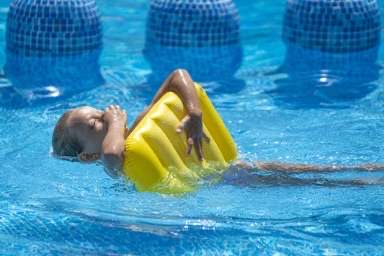If you’ve been psyching yourself up to tackle a charity race, or maybe just looking for a new challenge, it could be time you considered a triathlon…
Hardly for the faint hearted, these gruelling pursuits combine swimming, cycling and running for a true test of resilience and sporting ability. You may already be able to take on each stage individually, but that doesn’t necessarily mean you’re ready to go the full distance. At least not yet anyway. Matt Tomkin, Ironman competitor and director of VO2 Sportswear offers his advice…
Getting started
Committing to a triathlon means some pretty big lifestyle changes if you really want to give it your all. Exercising and dieting are two big factors that might have you swerving the BBQs in favour of a 42km run, but that’s just the tip of the iceberg.
Fix your diet
You’re going to need to strike a balance between high energy food to get you through training and low fat food that isn’t going to hinder your performance. Many people make the mistake of thinking they can simply train without the dieting element, but unfortunately that’s not the case.
The age old mantra of ‘my body is a temple’ is key, so eat what you need rather than what you want. Many people focus on the build-up and recovery of triathlon training. That means carbs before you train and protein 30 minutes to an hour after training to rebuild your muscles. This doesn’t mean vegetarians and vegans can’t join in though; there have been plenty of tri-champions, such as Brenden Brazier, who successfully completed Ironman whilst abstaining from meat. Getting your nutrition right will absolutely boost your performance and ensure your body is ready for the challenge.
Train harder than Rocky
Finding time to train is one of the hardest commitments for budding traithletes. This is the crux for many hopefuls as you really need to be training a minimum of 3-4 times a week. For newbies, it’s recommended that you try to focus on a specialism for the first 6 months. Train for every stage but make sure there’s one that you’ll be able to absolutely nail and claw back your time. Many people choose cycling for this very reason. It’s right in the middle so you can often gain any time lost from your swim and power through to the running stage.
Get a bike fit
Not only will you feel the burn from the sheer amount of physical activity, if you fail to protect yourself adequately you could gain an injury through other means. It’s not worth thinking about the horrors that could occur from an ill-fitting bike seat, so make sure your steed is as comfortable as possible.
Work on your technique
You may find eventually that you hit a glass ceiling. If you’re struggling to shave off another millisecond, it’s time you took a closer look at your technique. Many Ironman competitors consult professional swimming coaches to help them to gain the most power from every stroke for the most minimal effort. Having your technique assessed by a professional could also reduce your chance of injury and help you learn a method that will help you preserve energy throughout the day.
As mentioned before, a professional bike fit boasts plenty of benefits for triathlon competitors, including assisting your technique. Have you noticed that professional cyclists tend to sit higher on their bike? This is so they don’t have to keep bending their knees to push the pedals, allowing them to cycle whilst putting the least amount of pressure on their joints. This technique is often referred to as ankling and even novices can master it!
Training for a triathlon is one of the most rewarding experiences you can endure. Seeing all your hard work pay off as you speed across the finish line in your custom tri-kit will be a moment you’ll never forget. The main point to remember is simply to listen to your body. If you’re feeling the burn a little too much, give yourself a rest and don’t overexert yourself. Even top athletes need a chance to recover, so make sure you’re looking after yourself.







